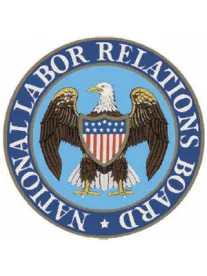'Tis the season to be jolly, and the National Labor Relations Board (“NLRB” or “Board”) was in an especially giving mood for employers over this past week. In the span of five days, it reversed several Obama era union-friendly cases and measures, all to the benefit of employers.
First, the NLRB vacated an Administrative Law Judge’s decision that had rejected a proposed global settlement to resolve all pending unfair labor practices (“ULP”) against McDonald’s Corporation. The Board directed the ALJ to approve the settlement. At issue was whether McDonald’s corporate was a joint employer with its franchisees and could be liable for their violations of federal labor law. By settling the case, McDonald’s avoided creating bad case law for itself and all franchisees.
Next, in a case called Valley Hospital Medical Center, the NLRB restored decades-old precedent permitting an employer to stop deducting dues after the expiration of a collective bargaining agreement. Under the Obama Board, employers committed a ULP for stopping dues collection post-expiration, as there was a presumption that checkoff provisions remained active.
The Board didn’t stop there. In Apogee Retail, the Board held employers do not automatically violate the National Labor Relations Act (“Act”) when they forbid employees from discussing confidential workplace investigations. Reversing the controversial Banner Health System decision, the NLRB held, so long as the confidentiality directive is limited to the period in which the investigation is pending, there will be no violation of the Act.
Likewise, in Caesars Entertainment, the NLRB held employers again can preclude employees from using their work emails for personal reasons. Including union-related reasons. Overruling the Obama Board’s Purple Communications decision, the Board held, “"Employees have no statutory right to use employer equipment, including IT resources, for Section 7 purposes."
But perhaps the Board’s biggest “gift” this holiday season to employers was relaxing the punitive time limits in the “quickie/ambush” election rule. While the rule was not overruled in its entirety, the Board made several changes which will provide management with more opportunities to put on a “pro employer” campaign. These include, among other things:
-
Requiring the Board to resolve worker eligibility issues, including supervisory status, prior to an election;
-
Scheduling pre-election hearings two weeks (instead of eight days) after the filing of an election petition;
-
Providing at least eight days to file a position statement (as opposed to the current rule which requires these briefs to be submitted a day before a hearing); and
-
Directing regional offices to schedule elections no less than 20 days after the parties stipulate to an election and/or there is a decision on eligibility issues.
Not coincidentally, all of these decisions were made prior to the expiration of the term of Lauren McFerran, the lone Democrat on the NLRB. Currently, the remaining three members of the Board are Republicans. While many experts expect that she will be nominated for the same position, the Board will operate with only Republican members for the first time in 85 years. Employer should expect many more management friendly decisions in the near term.




 />i
/>i

